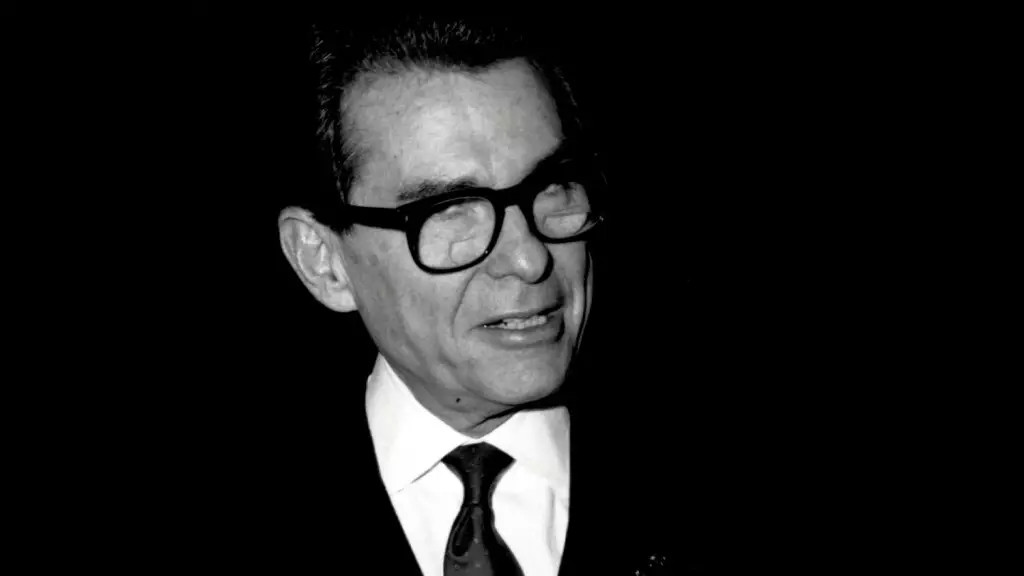The recent passing of Richard Kahn has cast a shadow over Hollywood, punctuating the fragility of life within the very industry that thrives on the illusion of permanence. At the age of 95, Kahn was not just a former president of the Academy of Motion Picture Arts and Sciences; he was an institution. His legacy is interwoven with the fabric of American cinema, an enduring testament to hard work, creativity, and an unmistakable passion for film. Yet, his departure prompts a larger contemplation of the ecosystem surrounding such luminaries: a blend of nostalgia and resignation, a bittersweet reminder of the transient nature of legacy in the film industry.
The Vacuum Left Behind
When someone of Kahn’s stature passes, the impact reverberates beyond personal grief—it’s a void felt in the very infrastructure of filmmaking. Kahn was more than just a governor; he was an architect of the Academy’s modern identity, launching initiatives that would shape the experience of new generations of filmmakers. How do we maintain that momentum when a pillar of such significance is gone? The subsequent mourning should not merely be a response to loss but a rallying point for the preservation of Kahn’s ideals—innovation, inclusivity, and integrity in storytelling.
In a profession that faces unique challenges, Kahn’s efforts to broaden the Academy’s reach through new member receptions and vital events like the Nominees Luncheon demonstrate that a commitment to community is imperative for its survival. We must ask: Does the industry recognize this need for community? Are the next-generation story weavers equipped to fill the enormous shoes left in Kahn’s wake? The entertainment machine is known for rapidly swinging from one trend to another, often neglecting those timeless values that figures like Kahn have championed.
Pioneering Achievements Amidst Industry Changes
Throughout his extensive career, Kahn contributed to groundbreaking films, including epic tales like *Lawrence of Arabia* and *Funny Girl*. However, we must confront the difficulty of sustaining such visionary efforts in an industry increasingly driven by economic imperatives. Has the corporate machinery of Hollywood eclipsed the artistic vision that Kahn personified? The current climate seems to favor franchises and sequels over original storytelling, a worrisome trend that could be detrimental to filmmaking’s rich legacy.
Kahn’s tenure speaks volumes about a time when the dynamics of film marketing were rooted in creative exploration rather than forced metrics and algorithms. His embodiment of traditional film marketing contrasts starkly with today’s reliance on social media and viral campaigns. There is a significant risk that this evolution could dilute the artistry that cinema is meant to celebrate. The question is, can Richard Kahn’s spirit guide a new generation lost in the metrics of viewership and engagement?
A Kind Heart in a Cold Industry
The tributes from his daughters paint a portrait of a man whose personal warmth transcended the often cutthroat nature of the entertainment industry. “A kind and generous soul,” they called him, which perhaps serves as the most poignant reminder of the humanity that exists behind the glitz and glamour. Kahn understood that film is not just a business; it is a medium to connect human experiences, joys, and struggles. In a world where moral compasses often falter, remembering his generosity can inspire an industry yearning for grounding.
Yet, as the industry embraces ever-changing trends and technologies, we must critically reflect on how we honor figures like Kahn. As we celebrate his contributions, are we also willing to integrate compassion and kindness into our creative endeavors? It is essential that the momentum he helped create does not stagnate, that new leaders arise to refuse the industry’s descent into transactional coldness. If Richard Kahn’s life reminds us of anything, it is that kindness has a place in the cutthroat business of film, and it should never be discarded.
The Path Forward
As we turn the page following Kahn’s departure, the challenge lies in creating a creative environment that fosters community over competition and sincerity over superficiality. Those who stand at the helm of the Academy and other influential organizations must discern their role in shaping this future. How will Kahn’s approach to film marketing and collaboration influence the next chapter of the Academy in a post-Kahn world?
The narrative does not end with his passing; rather, it compels us to dig deeper into our own practices and reevaluate what we value as an industry. Let us celebrate the legacy of Richard Kahn not just by remembering his contributions but by actively embodying his principles as we navigate the future of film.


Leave a Reply